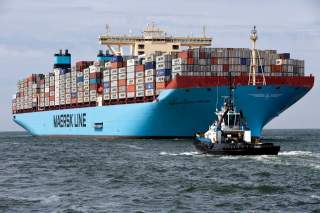China is Buying Up Ports and Influence Across Europe
Europeans need to pay some attention to the costs of Chinese port investments as a part of their Maritime Silk Road.
Even so, the Italians, like virtually all countries with crucial seaports, are eager to attract and keep Chinese investment. They have proposed a Five-Port Alliance for the Mediterranean leg of the Maritime Silk road with Venice part of an Adriatic port system that would include Trieste and Ravenna in Italy, as well as Koper in Slovenia and Fiume in Croatia. Italy has already begun investing in this plan, and it is unlikely that the new Euroskeptic Italian government will find any EU worries against such investment persuasive. Where such a plan would leave deeply leveraged partners like the Port Authority of Piraeus is unclear. Every port cannot be "the gateway to Europe." If the Europeans are to avoid a "race to the bottom" of the Maritime Silk Road, there will need to be some attention paid to the costs of Chinese investment and some cooperative mechanisms implemented.
RONALD H. LINDEN is Professor of Political Science at the University of Pittsburgh and a former Director of the European Studies Center at Pitt, a National Resource Center and Jean Monnet European Union Centre of Excellence, and the Center for Russian and East European Studies there. From 1989 to 1991 he served as Director of Research for Radio Free Europe in Munich, Germany. Research on this topic has been conducted at the Instituto Affari Internazionali (IAI) in Rome under the auspices of a Fulbright-Schuman fellowship.

